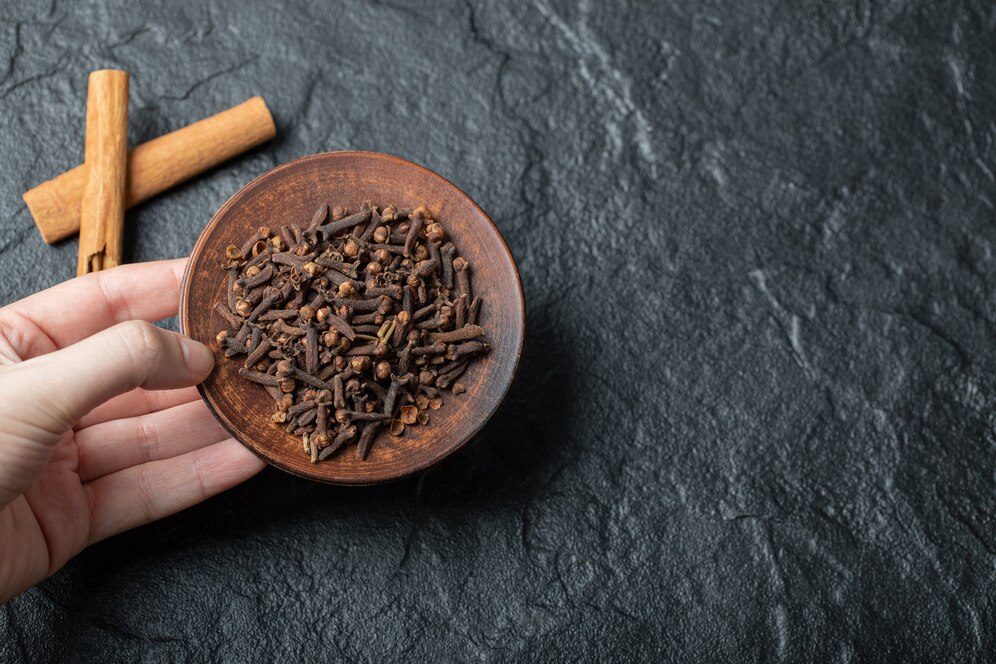
When it comes to spices that have left a significant mark on global cuisines and traditional remedies, clove holds a special place. Known for its warm, sweet, and slightly bitter flavor, the taste of clove is unmistakable and deeply aromatic. From ancient Ayurvedic practices to modern kitchens, clove has been used not only as a flavor enhancer but also for its medicinal properties. In this article, we’ll explore the distinctive clove taste, how it’s used around the world, its health benefits, and ways you can enjoy this powerful spice in your everyday life.
Clove is the dried flower bud of the Syzygium aromaticum tree, a member of the myrtle family. Native to the Maluku Islands in Indonesia — once known as the Spice Islands — clove has been traded for over 2,000 years and was one of the most valuable spices during the spice trade era. Its name originates from the Latin word clavus, meaning ‘nail,’ owing to its nail-like shape.
Today, clove is cultivated in several tropical countries, including India, Madagascar, Sri Lanka, Tanzania, and Indonesia. It’s widely used as a spice, in essential oil production, and as a medicinal herb.
The taste of clove is unique and easily recognizable. It carries an intense, warm, and sweet flavor with a sharp, slightly peppery bite. What makes the clove taste particularly notable is its complex combination of sweetness and bitterness, balanced with a strong aromatic quality.
When you bite into a clove or sip on clove-infused tea, you’ll experience a bold, pungent flavor followed by a lingering warmth that subtly numbs the palate — a result of eugenol, the primary compound responsible for clove’s distinct character.
Key elements of clove taste:
Warm and spicy: Similar to cinnamon and nutmeg, but sharper
Sweet and aromatic: Adds depth to both savory and dessert dishes
Slightly bitter and pungent: Can be overpowering if overused
Numbing sensation: A natural anesthetic effect on the tongue
This intricate flavor profile makes clove a versatile spice, suitable for both sweet and savory recipes, as well as in beverages and traditional medicines.
The taste of clove finds its place in a wide array of culinary traditions:
In Indian cooking, cloves are a key ingredient in spice blends like garam masala and biryani masala. They add warmth and aroma to curries, rice dishes, and desserts like kheer.
Cloves enhance meat dishes, rice pilafs, and stews. In Morocco, clove pairs beautifully with cinnamon, cumin, and coriander in tagines and spiced teas.
In Western desserts, cloves often complement spices like cinnamon, ginger, and nutmeg in pies, gingerbread, and fruitcakes. The clove taste lends warmth and sweetness to mulled wine and cider during the winter months.
Cloves are added to teas and herbal infusions for a warming effect. Vietnamese pho broth relies on cloves for its aromatic depth.
Cloves preserve food and infuse marinades and pickling solutions with rich, spicy notes.
Beyond its flavor, clove has been valued for centuries for its therapeutic benefits. The taste of clove isn’t just enjoyable — it also signals the presence of powerful natural compounds.
Cloves are loaded with eugenol, an antioxidant that helps fight oxidative stress and inflammation.
The numbing clove taste you feel when chewing a clove is also a natural remedy for toothaches, sore throats, and minor gum infections.
Clove stimulates saliva production and gastric secretions, aiding digestion and reducing bloating.
Clove-infused teas and steam inhalations can help clear congestion, soothe sore throats, and ease coughs.
Studies suggest that clove extract may improve insulin function, making it beneficial for people managing blood sugar levels.
If you’re intrigued by the bold and complex clove taste, here are some easy ways to incorporate this spice into your lifestyle:
Add to your morning chai or coffee: A pinch of ground clove elevates the flavor of hot beverages.
Use in spice blends: Create your own garam masala or pumpkin spice mix with cloves for enhanced flavor.
Infuse oils or vinegars: Whole cloves can flavor olive oil or apple cider vinegar for salad dressings.
Make clove tea: Boil a few cloves in water with cinnamon and honey for a soothing drink.
Incorporate into desserts: Add a dash of ground clove to pies, cookies, and fruit preserves.
Use in savory dishes: Enhance soups, stews, and marinades with a couple of whole cloves.
The ancient Chinese used cloves to freshen their breath before speaking to the emperor.
In medieval Europe, the taste of clove was associated with wealth and luxury because of its rarity and high cost.
Clove essential oil is still used in dental care products for its anesthetic and antiseptic properties.
Cloves were once so valuable that wars were fought over control of the spice trade routes.
While the taste of clove is delightful and its health benefits are impressive, it’s a potent spice that should be used in moderation:
Excessive consumption of clove oil can cause liver toxicity.
People on blood-thinning medications should consult a doctor before using clove supplements.
Overuse in dishes can result in an overpowering flavor that masks other ingredients.
The taste of clove is a timeless reminder of how spices have shaped our cuisines, cultures, and wellness practices. Its warm, sweet, and slightly bitter flavor adds depth to countless recipes while offering a host of health benefits. Whether you’re brewing a comforting cup of clove tea, seasoning a festive biryani, or easing a toothache with a clove, this little spice proves its worth time and again.
Embrace the bold, aromatic clove taste in your kitchen and natural health remedies — a tradition honored for centuries and still celebrated today.
When it comes to spices th...
Read More
When it comes to living a ...
Read More
Heart disease is a leading...
Read More
Planning a special event is no small task. W...
Read More
Copyright © 2019 Red Bean Hospitality All Rights Reserved Terms & Conditions | Privacy Policy
Website Design & Developed By: Daksha Digitas